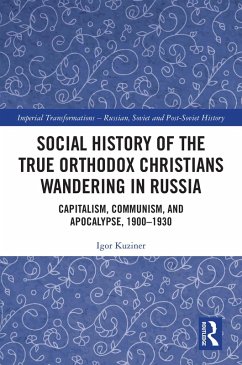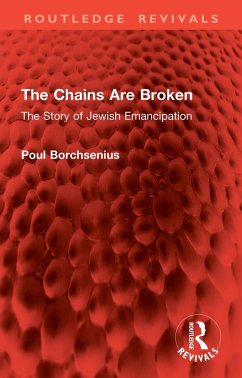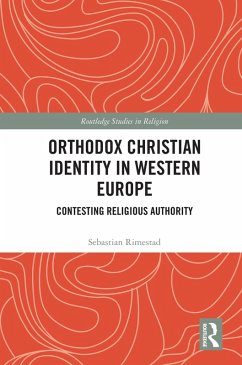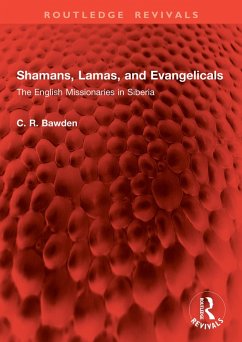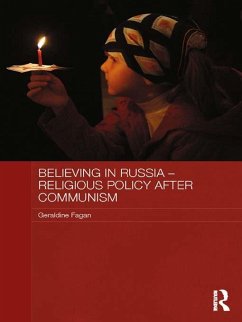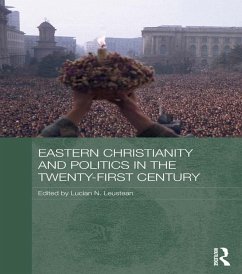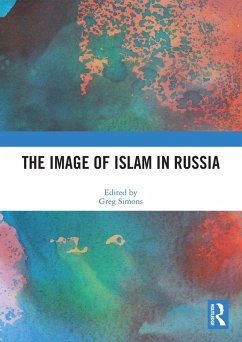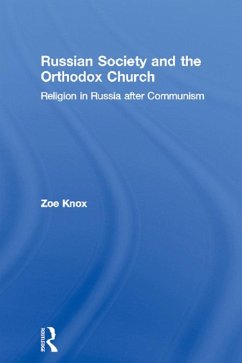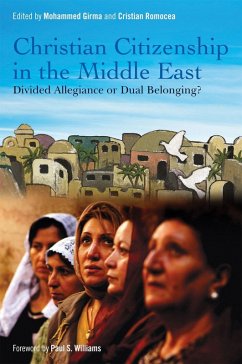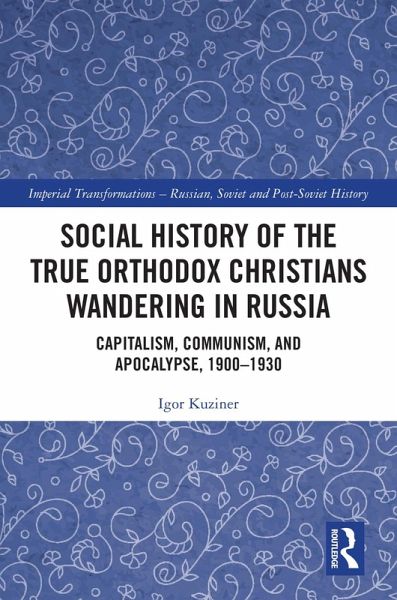
Social History of the True Orthodox Christians Wandering in Russia (eBook, ePUB)
Capitalism, Communism, and Apocalypse, 1900-1930
Versandkostenfrei!
Erscheint vor. 05.11.25
42,95 €
inkl. MwSt.
Unser Service für Vorbesteller - dein Vorteil ohne Risiko:
Sollten wir den Preis dieses Artikels vor dem Erscheinungsdatum senken, werden wir dir den Artikel bei der Auslieferung automatisch zum günstigeren Preis berechnen.
Weitere Ausgaben:

PAYBACK Punkte
21 °P sammeln!
This book explores the social history of the radical religious community of Old Believer-Wanderers during the period of rapid Late Imperial, Early Soviet, and Stalinist modernization.The self-titled True Orthodox Christians believed the 17th-century reforms of the Russian Orthodox Church ushered in the reign of an invisible Antichrist. Rejecting the corrupted world, they advocated extreme asceticism - renouncing property, marriage, and all contact with the state. Yet, despite their apocalyptic ideology, the Wanderers thrived in Late Imperial and Early Soviet society, engaging in capitalism, pi...
This book explores the social history of the radical religious community of Old Believer-Wanderers during the period of rapid Late Imperial, Early Soviet, and Stalinist modernization.
The self-titled True Orthodox Christians believed the 17th-century reforms of the Russian Orthodox Church ushered in the reign of an invisible Antichrist. Rejecting the corrupted world, they advocated extreme asceticism - renouncing property, marriage, and all contact with the state. Yet, despite their apocalyptic ideology, the Wanderers thrived in Late Imperial and Early Soviet society, engaging in capitalism, pioneering agricultural cooperatives, and even participating in Stalinist repression. Focusing on three key figures, this book examines how these seemingly isolated millenarians adapted to rapid modernization - from imperial capitalism to Soviet revolution and Stalinist terror. Their surprising integration challenges assumptions about radical religious groups, revealing both the adaptability of fringe communities and the unexpected flexibility of modernizing regimes. Through their stories, this book offers new insights into the relationship between marginalized beliefs and societal transformation.
This book offers a nuanced and realistic model of the social outcasts' existence that recovers their agency and subjectivity from the layers of discursive projections by elite commentators. It is a significant contribution to the history of religion and popular religiosity in the Russian Empire and the early Soviet Union, and it presents a new and rare perspective on Russian modernity. It will be of interest to researchers in the fields of Russian history, Christianity, Orthodoxy, and the history of religion.
The self-titled True Orthodox Christians believed the 17th-century reforms of the Russian Orthodox Church ushered in the reign of an invisible Antichrist. Rejecting the corrupted world, they advocated extreme asceticism - renouncing property, marriage, and all contact with the state. Yet, despite their apocalyptic ideology, the Wanderers thrived in Late Imperial and Early Soviet society, engaging in capitalism, pioneering agricultural cooperatives, and even participating in Stalinist repression. Focusing on three key figures, this book examines how these seemingly isolated millenarians adapted to rapid modernization - from imperial capitalism to Soviet revolution and Stalinist terror. Their surprising integration challenges assumptions about radical religious groups, revealing both the adaptability of fringe communities and the unexpected flexibility of modernizing regimes. Through their stories, this book offers new insights into the relationship between marginalized beliefs and societal transformation.
This book offers a nuanced and realistic model of the social outcasts' existence that recovers their agency and subjectivity from the layers of discursive projections by elite commentators. It is a significant contribution to the history of religion and popular religiosity in the Russian Empire and the early Soviet Union, and it presents a new and rare perspective on Russian modernity. It will be of interest to researchers in the fields of Russian history, Christianity, Orthodoxy, and the history of religion.
Dieser Download kann aus rechtlichen Gründen nur mit Rechnungsadresse in A, B, BG, CY, CZ, D, DK, EW, E, FIN, F, GR, HR, H, IRL, I, LT, L, LR, M, NL, PL, P, R, S, SLO, SK ausgeliefert werden.




